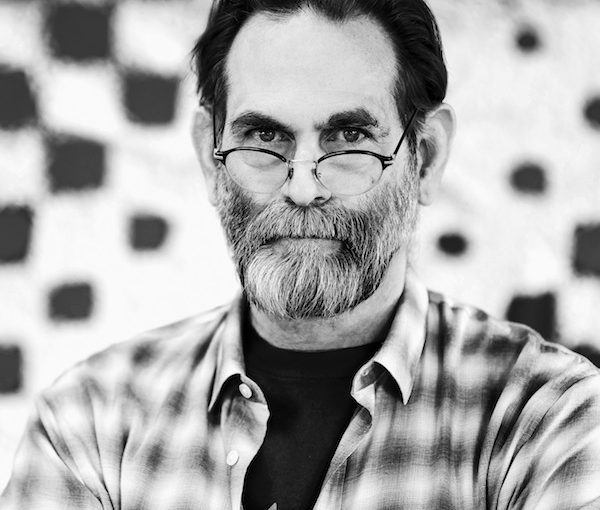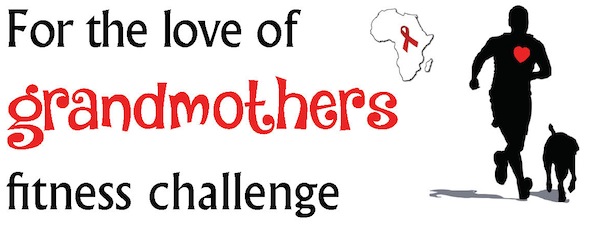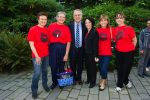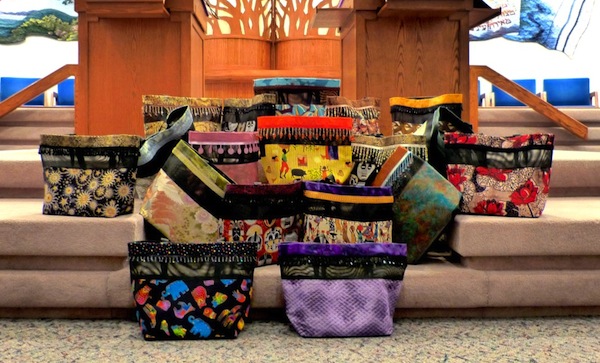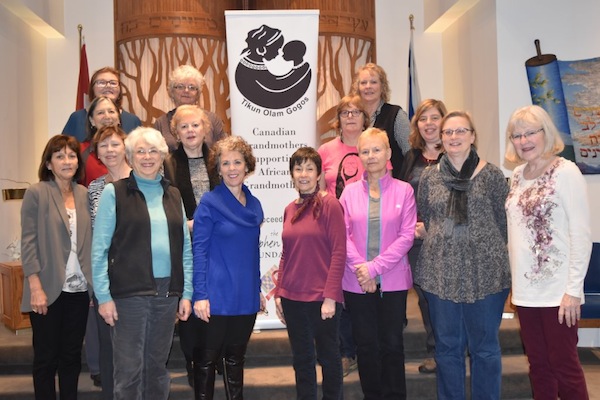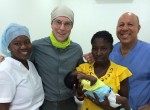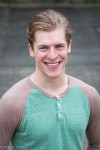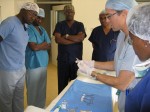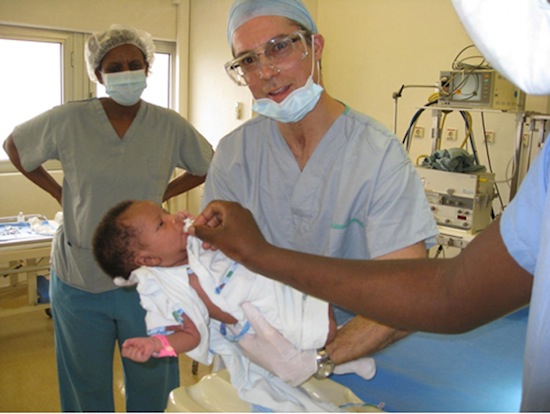Avram Finkelstein will be participating in the Queer Arts Festival, which takes place July 16-26. (photo by Alina Oswald)
A lot of it feels familiar, said New York-based artist and activist Avram Finkelstein about the current situation in the United States. The same American institutions that failed during the HIV-AIDS crisis are failing to effectively deal with the pandemic. And, when he was a teenager in the 1960s, cities were also being burned in America.
“It’s sad to think that we will be having the same struggles,” he told the Jewish Independent in a phone interview last week. “But, also, as you get older, you realize that progress is not a pendulum swing from left to right, it’s actually a spiral going forward and things do move to the right and they move to the left, but [there is] incremental change. So, part of me feels like we’re seeing the dying gasp of a world that I hope we’re leaving behind, and I see a world in the future that I want to live in. So that’s kind of helping me through this.”
Finkelstein was scheduled to come to Vancouver next month to participate in the Queer Arts Festival.
A founding member of the Silence=Death and Gran Fury collectives, as well as the political group ACT UP, he is the author of After Silence: A History of AIDS Through its Images (University of California Press, 2017). His artwork is part of the permanent collections of MoMA, the Smithsonian, and the Victoria and Albert Museum, to name but a few places, and his work has been shown around the world. He was set to unveil one of his new works in Vancouver. As it is, with the restrictions required to minimize the spread of COVID-19, he will be helping open the festival remotely, as part of a panel discussion chaired by curator Jonny Sopotiuk, which will also provide viewers with a tour of the festival’s art exhibition.
“I have a large mural that was going to be in the exhibition and now it’s going to be in a virtual space,” said Finkelstein. “I’m very excited about this piece and the fact that Jonny chose it – it’s the first time I’ve shown it…. I had a commission to do a work for the Shed, which is a new art space in New York, and, while I was waiting for the weaving tests of the final pieces – it’s a very large jacquard weaving – I decided to start drawing from the same source material as the cartoon for the weaving. I hadn’t drawn since recovering from a stroke; I had a stroke about two years ago…. I then realized that my hand isn’t my own, my body is no longer my own.”
The source material, he explained, “is a portrait of a gender-non-conforming friend who later transitioned. The work was all about corporeality as an abstraction and the ways in which we’re allowed to look at certain things, and what is public and what is private about gender and sexuality. And then, all of sudden, I realized, I’m actually talking about my own body in these drawings because my own body is not my own body anymore. I realized that I had made this sharp pivot from an abstract, theoretical idea of corporeality to this kind of war or dance, or I don’t know how to describe the physical process of having to use your entire body to hold a pencil.”
Despite the health, political and other challenges Finkelstein has faced, he remains hopeful.
“We’re trained to think that, if we don’t have hope, then the only thing that’s left is despair, but the truth is, hope isn’t so much the point – it’s the horizon that hope is sitting on and, so long as you can see a horizon, I think that, to me, is the same thing,” he said.
“I’m Jewish, as you know, and I think that Jews have a very different relationship to memory and to witnessing. If your people have been chased all over the globe for centuries, you take a long view. You sleep with one eye open, but you take a long view, and I think, therein, I’m eternally hopeful.”
In an interview in 2018, Finkelstein predicted that the situation in the United States would worsen before it improved.
“Which is another thing about being Jewish – you learn that there is no such thing as paranoia because it’s all real,” he said. “So, one could have seen, as plain as the nose on one’s face, where America was heading. And, in actual fact, what happened with Trump’s election was, we’ve joined the international march of global totalitarianism…. And, it’s not about to get really bad, it’s really, really bad. It’s really bad and I think that, here again, you can’t be Jewish and not think – not think your entire life, actually – in some way being prepared for, OK, what are the risks I’m willing to take if this happens? How far would I be willing to fight for other people if that happens. The shadow of Nazi Germany never escaped your consciousness.”
So how does Finkelstein conquer the fear?
“I guess I’ve replaced it with anxiety,” he said, laughing. But, he added, “I don’t know why I’m not fearful. I think that I was just raised – a day doesn’t go by that I’m not reminded of another lesson or another incident or another part of Jewish-American social history in the 20th century that my family was directly there for. I almost feel like I’m the Zelig of the left. All the stories you would tell my mother or my father, they’d be like, ‘Oh, yeah, we were there. We were there at the Robeson riots. Oh, yeah, we were there when they closed The Cradle Will Rock and everyone walked down the street’ – exactly the way it was in the last scene in Tim Robbins’ movie. When I saw it, it seemed too preposterous, I called my mother, said, ‘Could that have happened?’ And she started singing the song that Emily Watson sings in the film.
“So, I think I have such a sense of self that one could interpret it as fearlessness, but I think that it would be more accurate to say I was not given an alternative role model. I was raised to feel the suffering of others and, if other people are suffering, there’s no night’s sleep for me. So, there’s really no option – you’re either closing your eyes to something terrible or you’re doing everything you can to try and make it less terrible. And I think that that’s the Jewish condition.”
He described Jews as being like queer people. “We are everywhere,” he said. “We’re in every culture, we’re in every race, we’re in every gender, we’re in every country. We have every type of ethnic community that we surround ourselves with. An Ethiopian Jew is different from an Ashkenazi Jew, but we’re still all Jews.”
Though raised by atheists, he said, “I don’t think you’ll find anyone more Jewish than I am or than my family, but Jews are prismatic. We are many things. Consequently, I feel like I can’t speak on behalf of other Jews, I can only speak on behalf of myself.
“Likewise, I’ve always had people of colour in my family; I just always have. And, I learned very early on back in the ’60s, when the civil rights movement was fragmented between King and Stokely Carmichael and the Panthers, and everyone was choosing sides, I think that’s another example of what I’m talking about – there are many ways in which to be black. And so, I don’t feel like what I have to say about this current moment is anywhere near as important, essential, vital, critical … [as] a person of colour – what a person of colour has to say about this moment is much more important.”
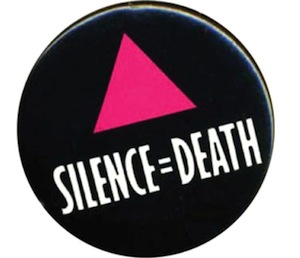
Finkelstein was one of the minds behind the now-iconic Silence=Death poster, which has been adapted over the years by many people. A variation of it could be seen in at least one of the recent protests. The original iteration encourages viewers to use their power and, for example, vote. In general, working towards solutions is an important part of Finkelstein’s activism.
“I think critiques are easier,” he said. “I think also we mistake public spaces, we mistake the commons, as a declarative space. I tend to think of it as an interrogative space. I think that, even in late-stage capitalism, when someone is trying to get you to put your money in a bank or go buy a soft drink, there’s something Socratic about the gesture of trying to get you to do something … you’re responding to it, you’re engaged in it, and that’s the interrogative part that I think is easy to overlook. And I think that’s where the answers are.
“I think that the way that the Silence=Death poster is structured is it’s really like a bear trap. We worked on it for nine months – the colour has certain codes and signifiers, and the triangle has another set of codes and we changed the colour of the triangle from the [concentration] camps and inverted it to obfuscate some of the questions about victimhood. And the subtext has two lines of text, one that’s declarative and one that’s interrogative, and the point size forces you into a performative interaction.”
This poster and other work with which Finkelstein has been involved include aspects that “people are very afraid to experience,” he said, “which is fallibility, mess-making and tension. And I find all of those things as generative, as kindness, support, community. They’re differently generative and … hearing so many people who are trying to figure out how to find their way in, as white people, into the conversations that are happening in America right now, is the same struggle as a young queer person trying to find their way into the AIDS crisis. I mentor a lot of young queer artists and activists and the first thing they say, their immediate impulse is, I have no right to this story, I wasn’t here, I didn’t live through it. To which my response is, immediately, you have every right to the story – it’s your story, it’s the story of the world…. Race is a white person’s problem. People of colour are paying the price for it, but the problem, the genesis of the problem, is whiteness. And we have to figure out how to talk about it…. But I think now is the time for listening.”
He said, “We have to know what our responsibilities are and this goes back to Judaism – our responsibilities as witnesses. You can’t let your discomfort change the importance of this moment or overshadow the importance of this moment.”
One of the things Finkelstein does is teach social engagement via flash collectives. “I think we’re never put into a position where people mentor our personhood,” he said. “We have people mentor us as computer programmers or healthcare providers or tax accountants or artists or writers, but … there’s something primeval which is missing in the way we’re acculturated, and the flash collective is almost shamanistic in that regard; it taps into this primal thing that is quite astonishing when you let it out.”
Understanding that he will not live forever, he said “the Silence=Death poster casts a very mighty shadow and it makes it very difficult for people to figure out how to make new work, if that’s what they think it has to be…. It became obvious to me that I could be talking about Silence=Death until the day I drop, but, one day, I am going to drop and I want other people to start making those new works and I thought this would be a way to get people to make new work.”
He described the collectives, which teach political agency, as being “like a stew of the top 10 hits of grassroots organizing in a condensed workshop that’s tailored to the individuals in the room.”
He said, “I believe that I don’t necessarily have to change the world because I know that there could be a teenager in 2050 who sees something that someone I worked with did that made them think of something else that I never would have thought of. That is the point of the work, not the how do I fix it before I’m gone, which is the dilemma of Larry Kramer [who passed away last month]. He really thought, and I think it’s really male, but it’s very men of a certain generation also – he really thought that he could fix the AIDS crisis, and it didn’t happen.”
Unfortunately, space doesn’t allow for most of what Finkelstein shared with the Independent about Kramer, who he described as “a complicated person.”
Kramer was a rhetorician, said Finkelstein. “And I’m a propagandist. We’re both rhetoricians in a way, but what was the dividing line that made Larry incapable of understanding the work that I did?… I felt like I understood his process better than he understood mine. And I started to think, well, here’s the difference between a person who articulates their rage with words and a person who articulates their rage with every tool in the toolbox…. Not to make myself sound superior, but I realized that I think of rage as sculptural; he thought of rage as rhetorical. I think of rhetoric as sculptural, I think of it as casting a shadow and activating social spaces. And I think that he was a Jewish gay man of a different generation and a lot of his rage was tied into his personal struggles. And I did not have those. I had other personal struggles, but I did not have them.”
As part of the Queer Arts Festival, Finkelstein will lead a flash collective on the question, “What does queer public space mean in a 21st-century pandemic?” He hopes the resulting work will be shown in a public space.
For more information about the festival, visit queerartsfestival.com. The next issue of the JI will feature an interview with QAF artistic director and Jewish community member SD Holman.

